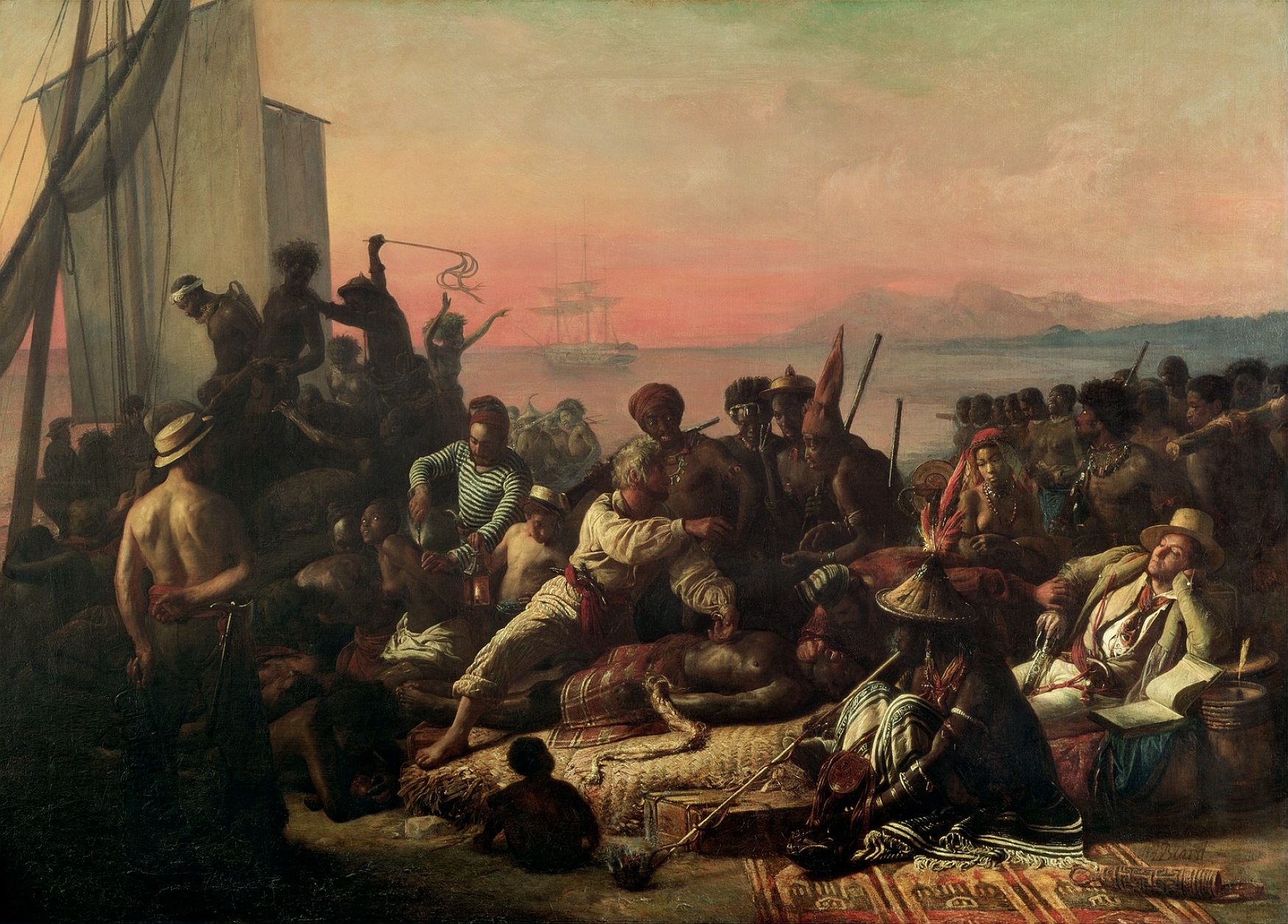Today, we received a lecture from Dr. Michael Williams on the transatlantic slave trade and the effects of it that still persist in Africa today. I found the lesson to be one of the most impactful moments of the trip so far, because it allowed me to see Ghana in a new way. I know some information about the slave trade and its impact from past history classes, but when confronted with the reality of it, it can be easy to only focus on what’s right in front of me, without thinking about why it’s that way. Ghana is a beautiful country, but it is still developing. During my time here I’ve noticed that it sometimes suffers from lack of organization and other qualities that we think of as necessities in the United States, like reliable plumbing. Much of this can be attributed to past forces that have worked in Africa, like the slave trade and colonialism. Dr. Williams outlined different ways the slave trade affected the continent and what it means for African nations today.
He told us that it created a pattern of depopulation. Historians are unsure of the exact numbers, because some people smuggled slaves without recording numbers, but they do know that one of the most important segments of society, the youth, was hit the hardest. Dr. Williams explained that the youth represents innovation and curiosity. And as Professor Deb Morrison put it: the youth is the future. Dr. Williams also said that Ghana still suffers from depopulation today, but not because of slavery. In the past it was quantity, but today it is quality, he said. For example, many doctors and nurses leave the country for “greener pastures,” because the living wage is low. And I can tell you from experience that the living itself is not always easy, and we are among the more fortunate in Accra.
Another significant way the slave trade impacted Africa is migration. Dr. Williams told us that people left areas to migrate to spaces with less fertile land in order to avoid capture by slavers. This affected farming and didn’t allow people to develop farming as much as they could have. “You can manage and survive, but you aren’t going to develop,” said Dr. Williams. This still persists today, as Africa imports about $35 billion worth of food annually, according to a CNBC Africa article. This also affects trade. Because it never had a chance to develop, Africa is largely an exporter of raw goods, and the goods that they import are more expensive.
According to Dr. Williams, the transatlantic slave trade is “neglected as a subject,” both here in Ghana, and elsewhere. But I will remember. We visit the Cape Coast castle this weekend, a place that existed to take away the freedom of human beings and the freedom of countries. And there, I will remember the influences that have shaped these places. And the next time I walk down the street and see garbage and sewage filling the gutters – I’ll remember then too. Or when I see someone sleeping on the sidewalk. Or the next time water doesn’t come out of the faucet when I turn on the tap. I will remember that these places don’t just exist for no reason. Past forces have played significant roles to make them what they are. We may not always realize the effects of history, but they are very real and shape the spaces we see today.
